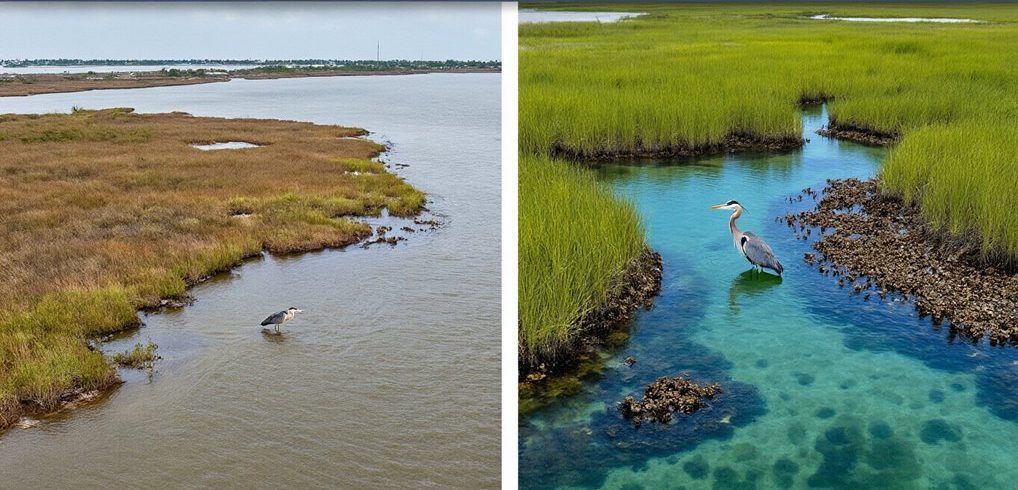Florida lawmakers unanimously approved a bill banning oil and gas drilling within 10 miles of the Apalachicola National Estuarine Research Reserve. The legislation now awaits Governor Ron DeSantis’s signature. This bipartisan effort aims to protect nearly one million acres of environmentally sensitive land, despite opposition from the petroleum industry. The ban safeguards the region’s essential seafood and tourism industries from potential contamination. The unanimous vote demonstrates Florida’s commitment to preserving its fragile coastal ecosystems.
Protection of Florida’s vulnerable coastal environment took center stage as the state legislature passed a bill banning oil and gas drilling near the Apalachicola National Estuarine Research Reserve. The legislation, which received strong bipartisan support, now awaits Governor Ron DeSantis‘ signature to become law.
Florida lawmakers unite to shield Apalachicola’s treasured coastal waters from drilling, sending bill to Governor DeSantis.
The bill specifically prohibits drilling within 10 miles of the reserve, creating a protective zone around the Apalachicola River and Bay. This ban will apply to rural areas in Calhoun, Franklin, Gulf, and Liberty counties, safeguarding approximately one million acres of environmentally sensitive land.
Representative Jason Shoaf, whose family has ties to the natural gas industry, emerged as a key supporter of the proposal. He emphasized that Apalachicola is “an area of critical state concern” that deserves protection.
Lawmakers repeatedly referenced the devastating BP oil spill from 15 years ago that harmed the region’s economy. The new legislation aims to prevent similar damage to the area’s seafood and tourism industries, which depend on clean waters. With ocean acidification increasing due to climate change, these coastal ecosystems are already facing significant pressure without the added threat of potential drilling contamination.
The American Petroleum Institute opposed the 10-mile rule, calling it “arbitrary.” Industry representatives argued the ban would devalue private property and remove mineral rights without compensation.
Representative Dean Black described the bill as an attempt to balance energy security with food security. The final version represents a compromise between House and Senate proposals, with the Senate modifying the bill to apply only in designated rural opportunity areas.
The legislation will create new regulatory standards for the Florida Department of Environmental Protection to evaluate when issuing drilling permits near water bodies. Department of Environmental Protection had previously issued a draft permit for drilling that was challenged by environmentalists citing threats to the river. It also extends protection to three National Estuarine Research Reserves across the state.
Local residents have expressed relief at the bill’s passage. The bill passed with unanimous support in both the House and Senate, demonstrating strong legislative consensus on this environmental protection measure. Thousands had voiced concerns about potential drilling threats to the region’s ecology and economy. The unanimous vote signals broad agreement that these sacred waters deserve special protection from industrial activities that might damage their fragile ecosystems.
References
- https://www.cbsnews.com/miami/news/offshore-oil-drilling-ban-environmentally-sensitive-areas-florida-house-vote/
- https://www.wmnf.org/bill-to-curb-oil-drilling-is-headed-to-ron-desantis-desk/
- https://www.panhandle.press/p/a-proposed-drilling-ban-is-heading
- https://news.wfsu.org/wfsu-local-news/2025-05-01/florida-lawmakers-and-a-judge-thwart-oil-drilling-near-apalachicola-bay








